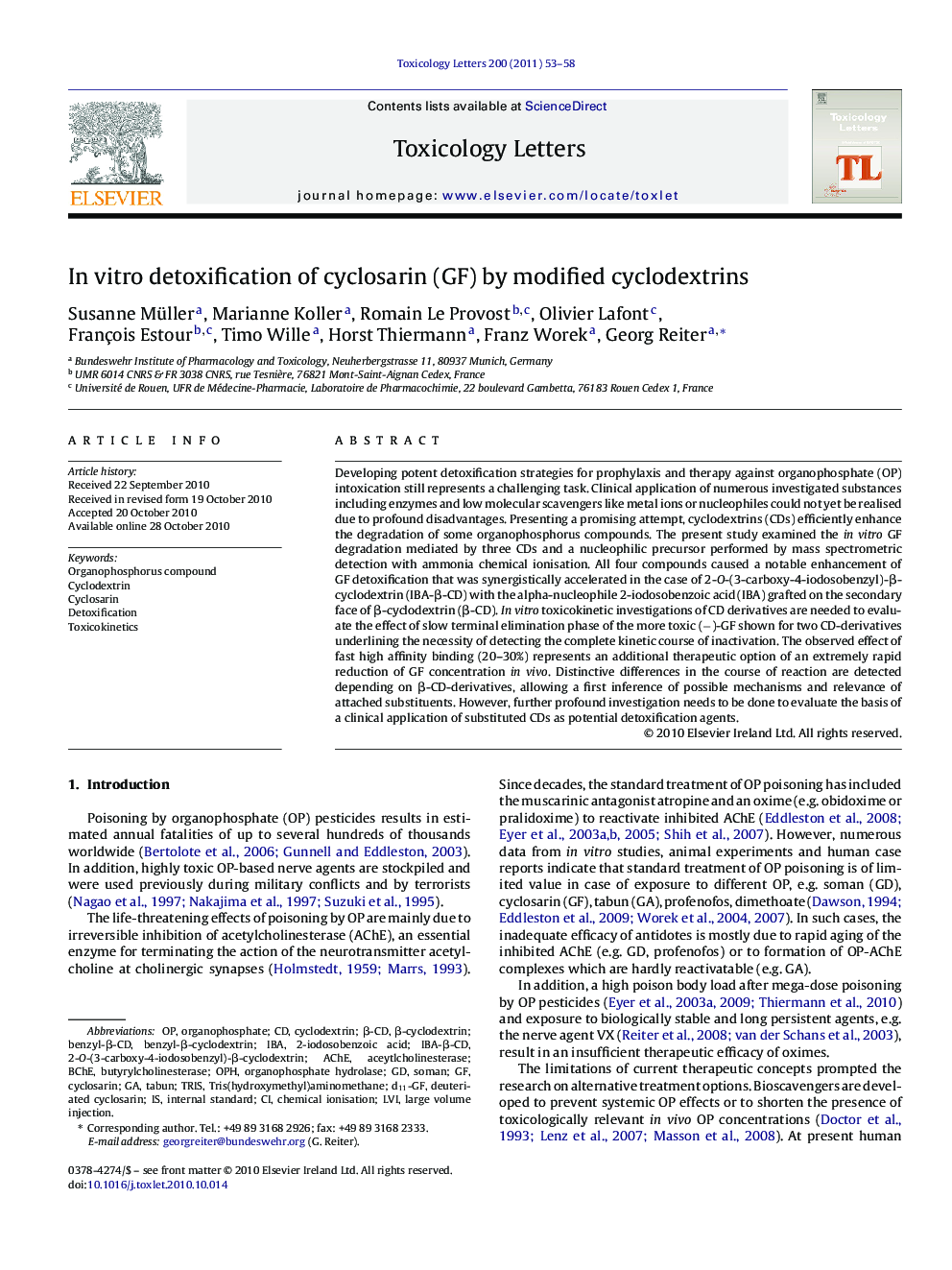| Article ID | Journal | Published Year | Pages | File Type |
|---|---|---|---|---|
| 2600014 | Toxicology Letters | 2011 | 6 Pages |
Developing potent detoxification strategies for prophylaxis and therapy against organophosphate (OP) intoxication still represents a challenging task. Clinical application of numerous investigated substances including enzymes and low molecular scavengers like metal ions or nucleophiles could not yet be realised due to profound disadvantages. Presenting a promising attempt, cyclodextrins (CDs) efficiently enhance the degradation of some organophosphorus compounds. The present study examined the in vitro GF degradation mediated by three CDs and a nucleophilic precursor performed by mass spectrometric detection with ammonia chemical ionisation. All four compounds caused a notable enhancement of GF detoxification that was synergistically accelerated in the case of 2-O-(3-carboxy-4-iodosobenzyl)-β-cyclodextrin (IBA-β-CD) with the alpha-nucleophile 2-iodosobenzoic acid (IBA) grafted on the secondary face of β-cyclodextrin (β-CD). In vitro toxicokinetic investigations of CD derivatives are needed to evaluate the effect of slow terminal elimination phase of the more toxic (−)-GF shown for two CD-derivatives underlining the necessity of detecting the complete kinetic course of inactivation. The observed effect of fast high affinity binding (20–30%) represents an additional therapeutic option of an extremely rapid reduction of GF concentration in vivo. Distinctive differences in the course of reaction are detected depending on β-CD-derivatives, allowing a first inference of possible mechanisms and relevance of attached substituents. However, further profound investigation needs to be done to evaluate the basis of a clinical application of substituted CDs as potential detoxification agents.
